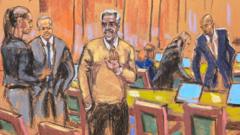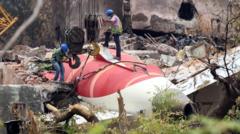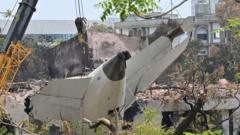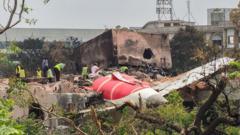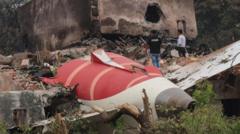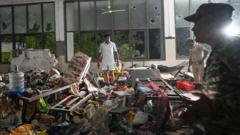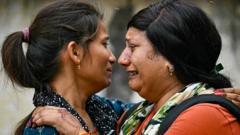Amidst the ongoing discussions about the next pope, survivors of clerical abuse reflect on Pope Francis’ approach to addressing the Church’s sexual abuse crisis, voicing concerns that he hasn’t done enough to hold abusers accountable and prevent future incidents.
Survivors Demand Accountability as Pope Francis' Legacy Under Scrutiny
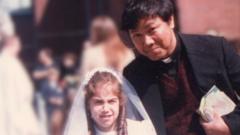
Survivors Demand Accountability as Pope Francis' Legacy Under Scrutiny
As 133 cardinals gather to elect a new pope, victims of clergy sexual abuse express doubts about the legacy of Pope Francis and call for greater accountability within the Church.
The future of the Catholic Church hangs in the balance as 133 cardinals convene in Rome to select a new leader, with the shadow of Pope Francis’ controversial legacy looming large. Among the most contentious issues is the Church's response to the sexual abuse of minors by clergy, a topic that has elicited strong feelings from survivors who feel justice remains elusive.
Alexa MacPherson, who suffered abuse by priest Peter Kanchong from the age of three, speaks out about her experiences. “When I was nine-and-a-half, my father caught him trying to rape me on the living room couch,” she recalls hauntingly. After her father reported the incident, legal proceedings began, but the Catholic Church intervened, revealing a deep-rooted culture of silence aimed at protecting the institution rather than justice for victims.
Reflecting on Pope Francis’ tenure, MacPherson grants him some credit for acknowledging abuse victims but emphasizes a persistent call for further action. “There’s just so much more that the Church and the Vatican and the people in charge can do," she states flatly, demonstrating the frustration felt by many survivors.
A letter from then-Archbishop Bernard Law illustrates the Church's historical reluctance to confront abuse – instead of standing by victims, the Church sought to minimize the scandal. For years, this cycle of secrecy and protection continued, resulting in further suffering for countless individuals.
Pope Francis, while having made strides such as revising pontifical secrecy laws and holding conferences on abuse, is still seen by critics as falling short in terms of comprehensive reform. MacPherson’s attorney likens the current situation to being governed by a culture of deceit, where Church authorities often obstruct the necessary transparency around abuse cases.
As the media spotlight shines on the potential successor to Pope Francis, survivors hope for a radical shift in how such cases are handled. “You cannot possibly move forward unless you hold those people accountable,” MacPherson points out. Her plea for full accountability reveals a deeply embedded yearning among abuse survivors for genuine reform, as they continue to carry the burden of their past unresolved traumas.
With Kanchong still unpunished and the Church's systemic issues unresolved, the future remains uncertain for victims like MacPherson. Her voice, alongside many others, serves as a stark reminder that the path to healing requires more than mere acknowledgment; it demands unwavering commitment to justice and accountability within the Church's ranks.

